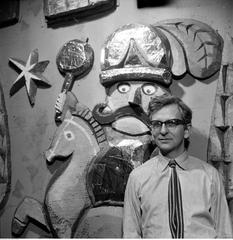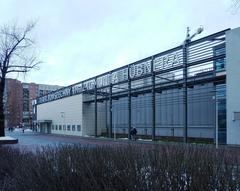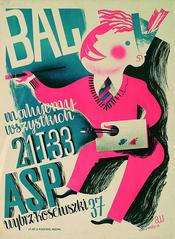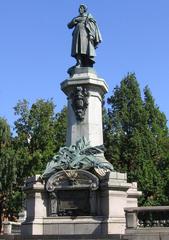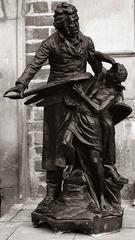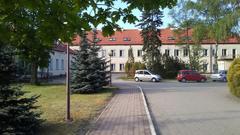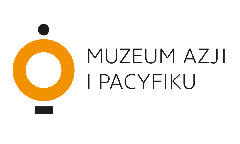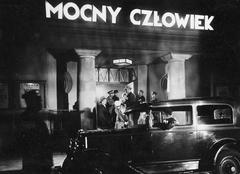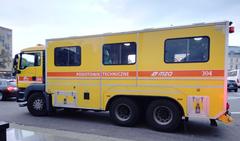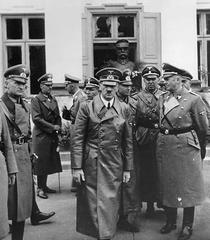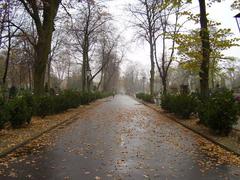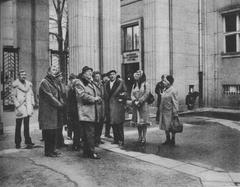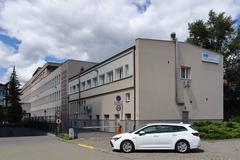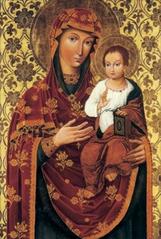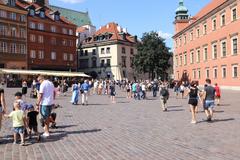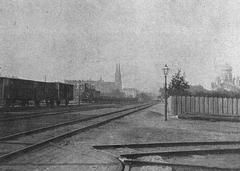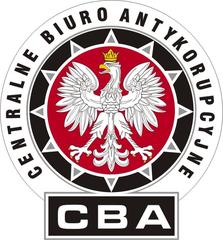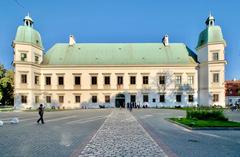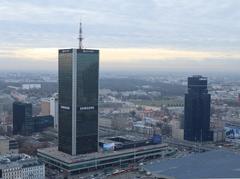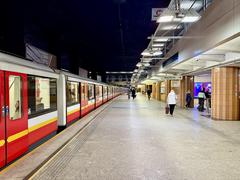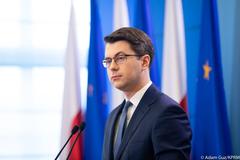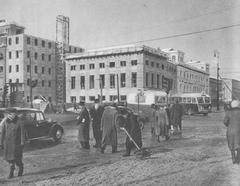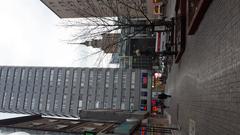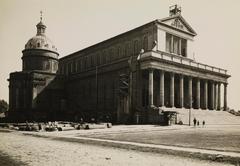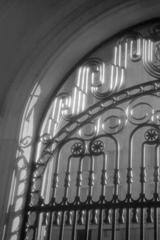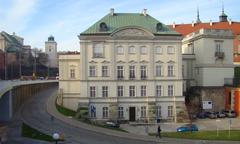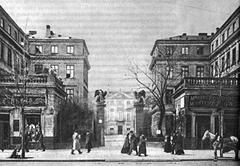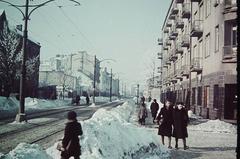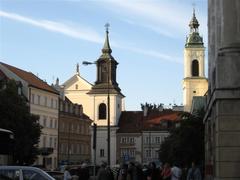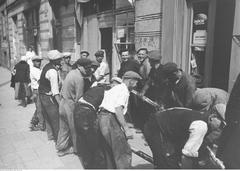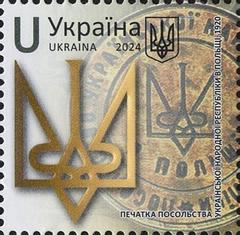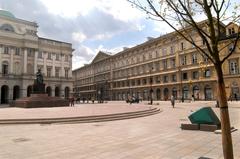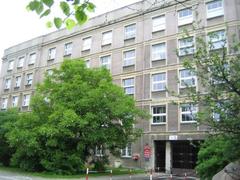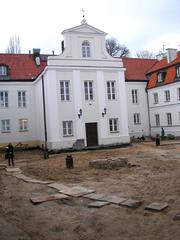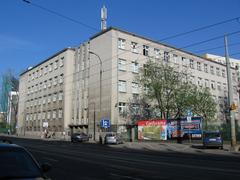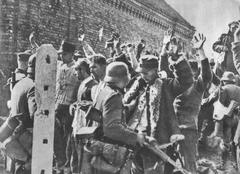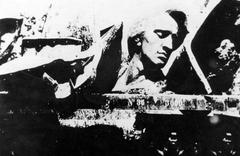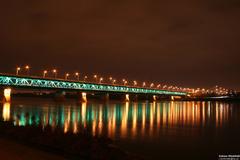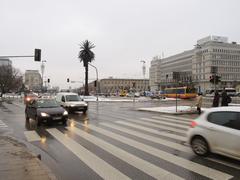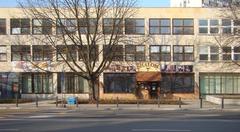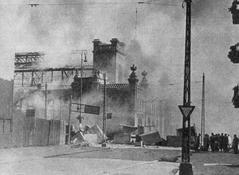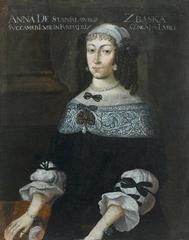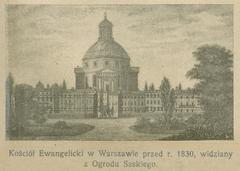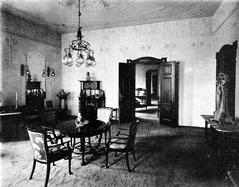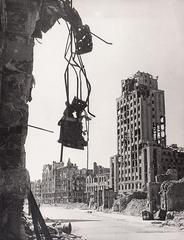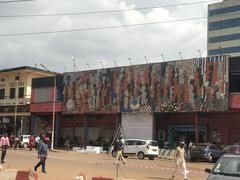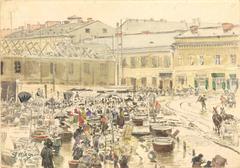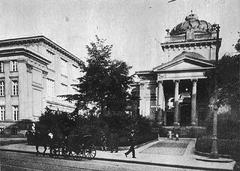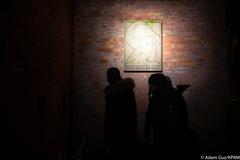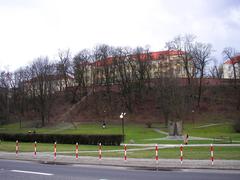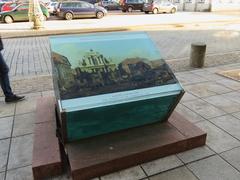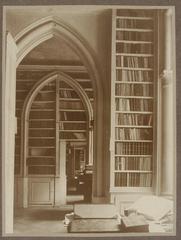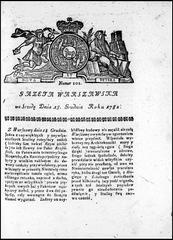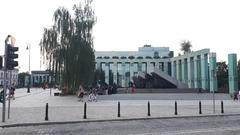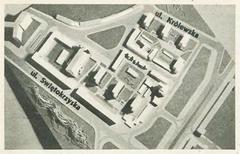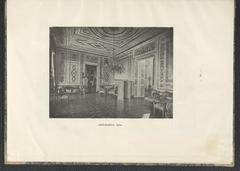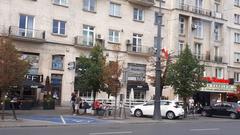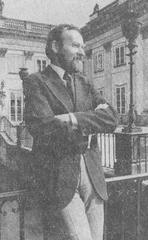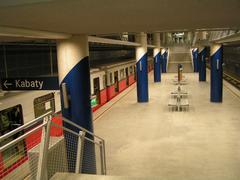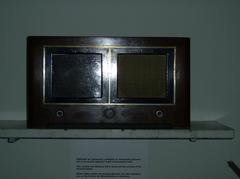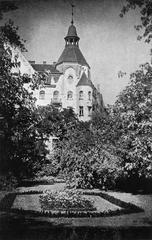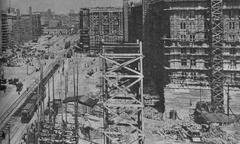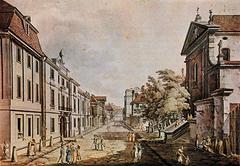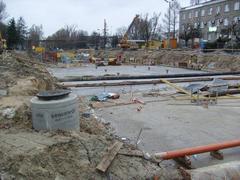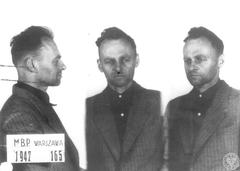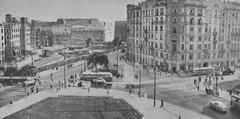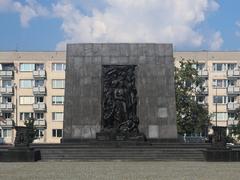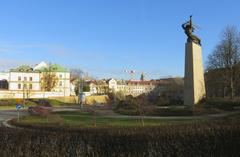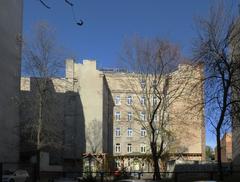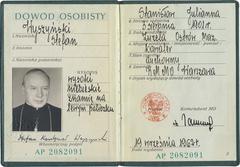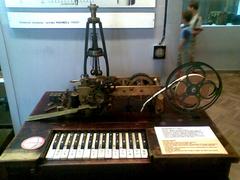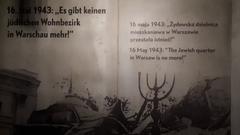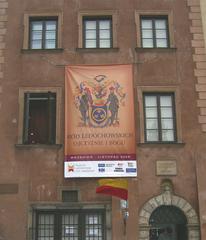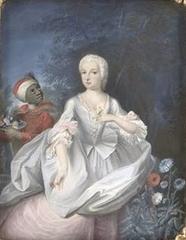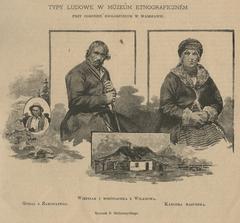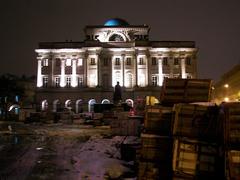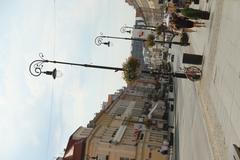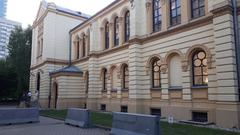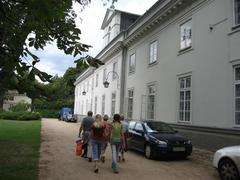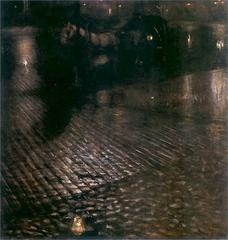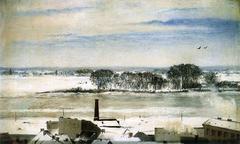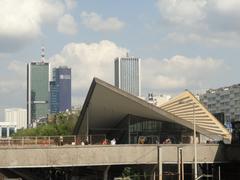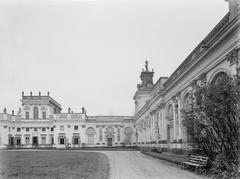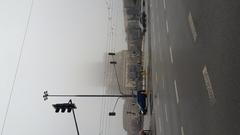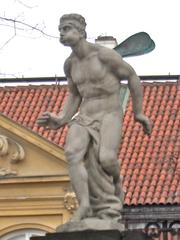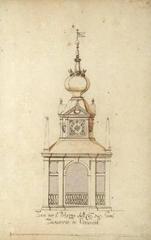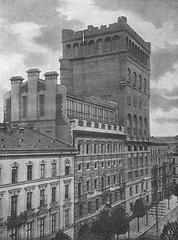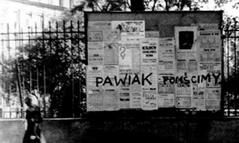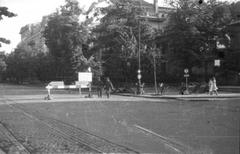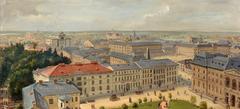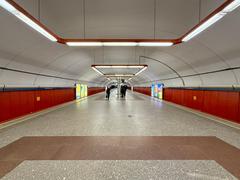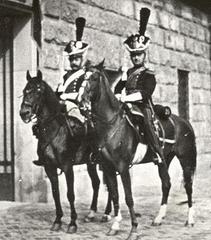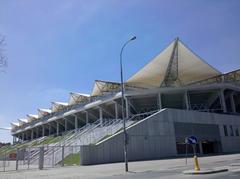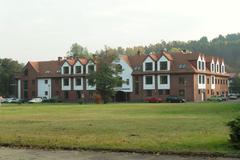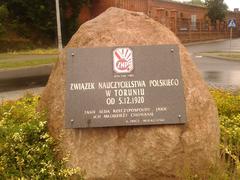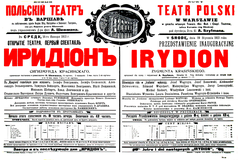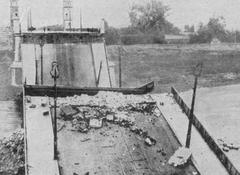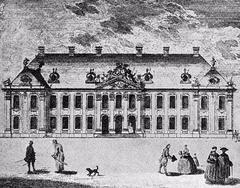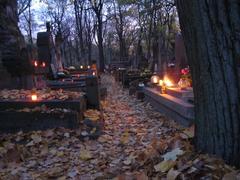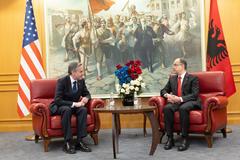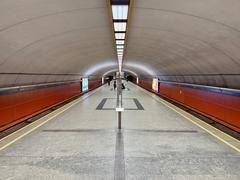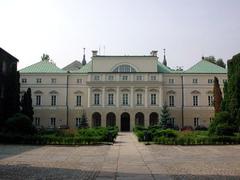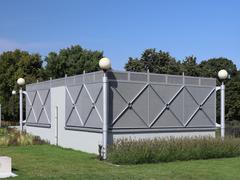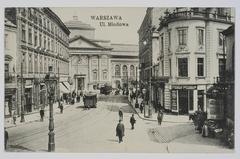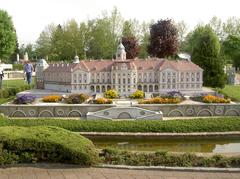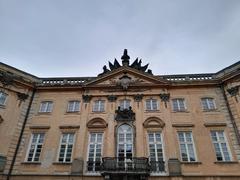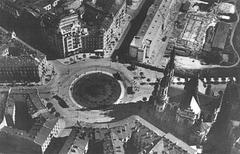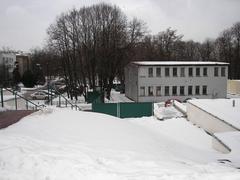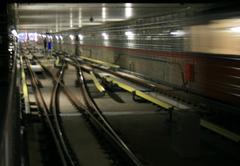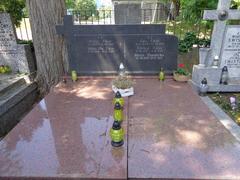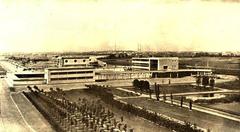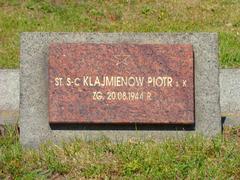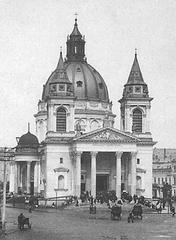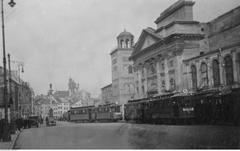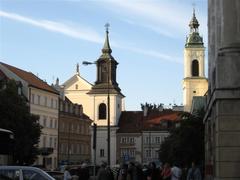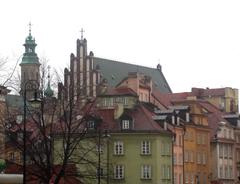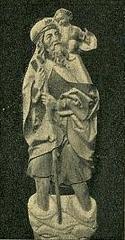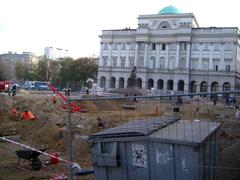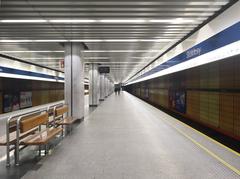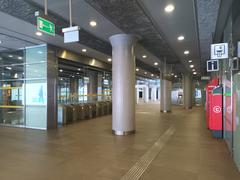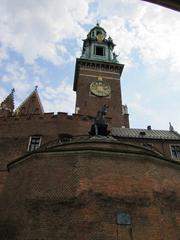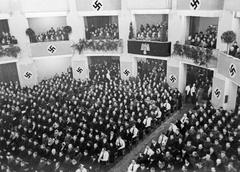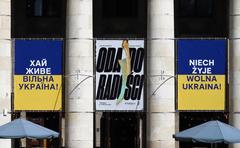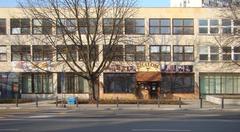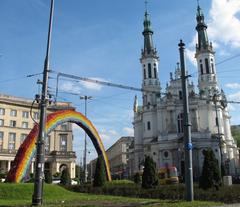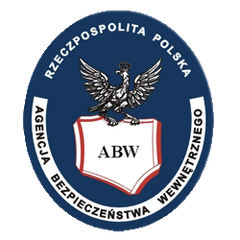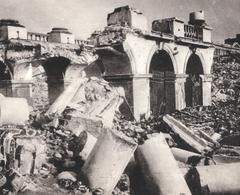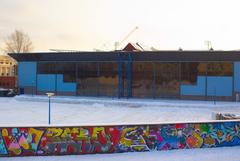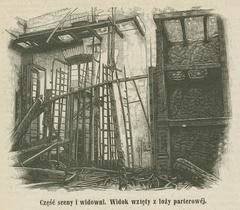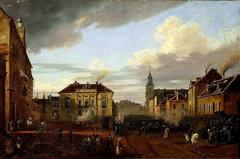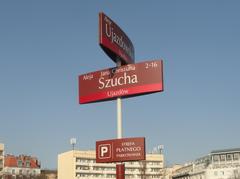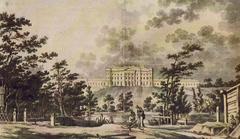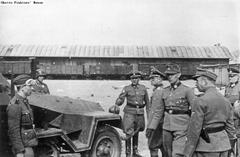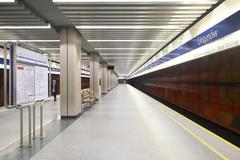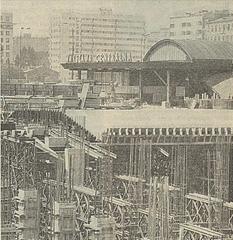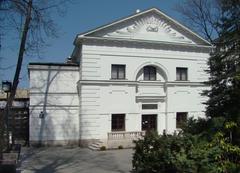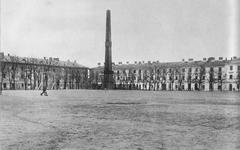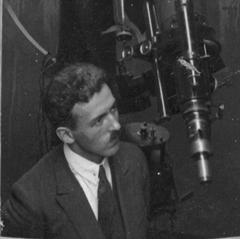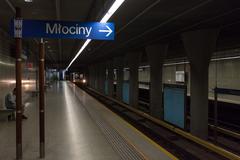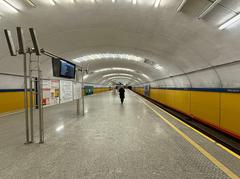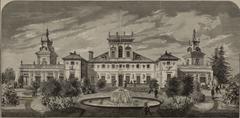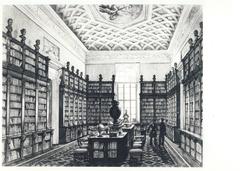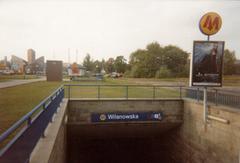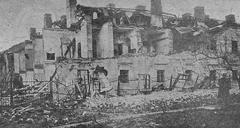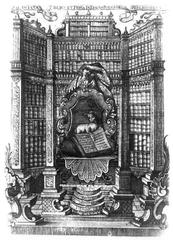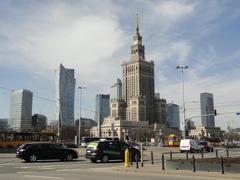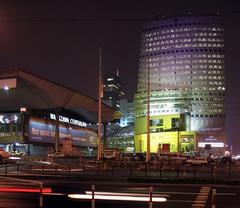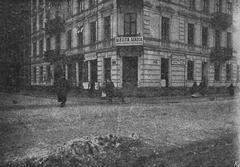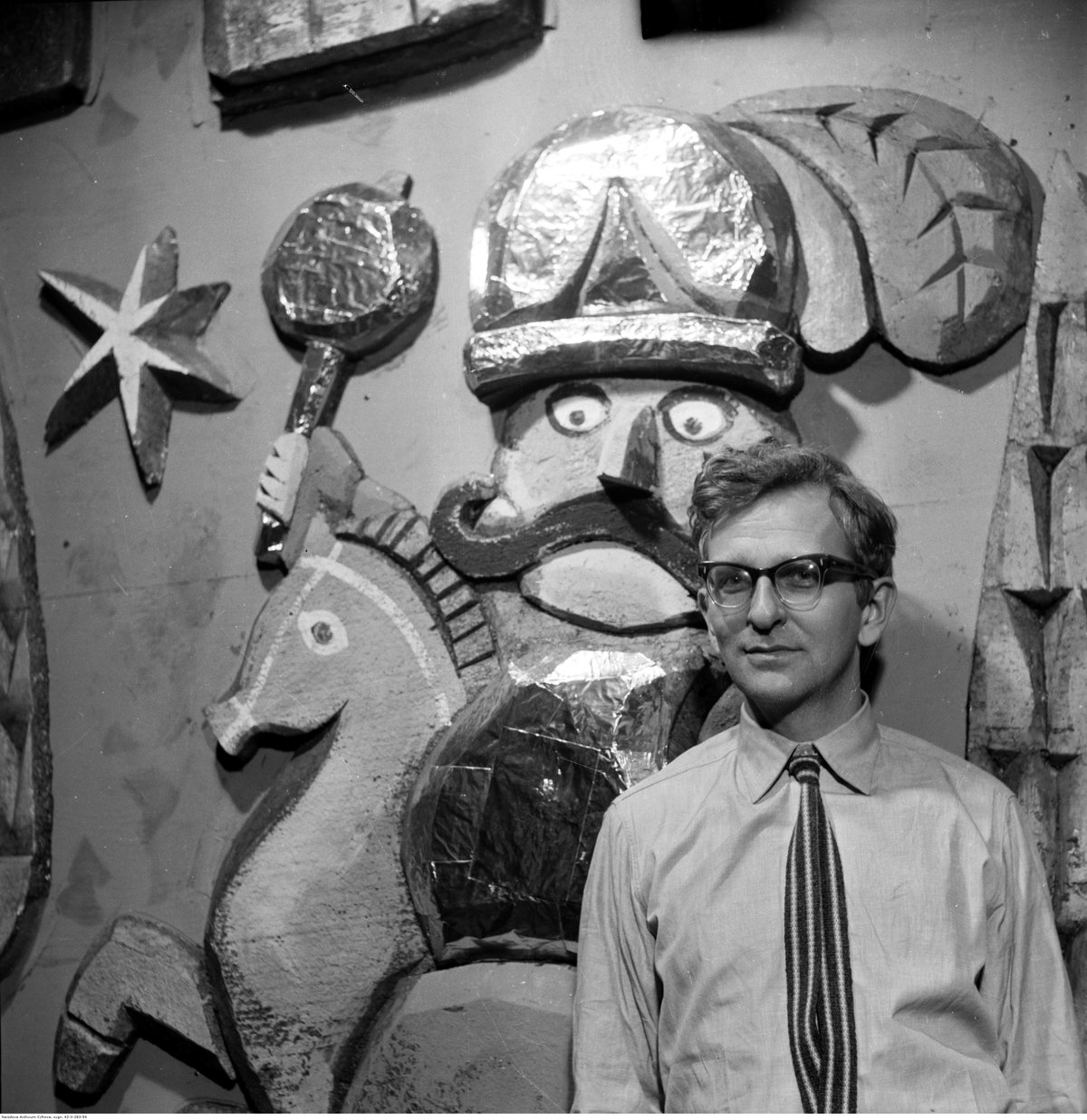
Teatr Powszechny Warsaw: Visiting Hours, Tickets, and Historical Significance
Date: 14/06/2025
Introduction
Teatr Powszechny in Warsaw, located in the dynamic Praga-Południe district, stands as a cornerstone of Polish contemporary theatre and a symbol of social engagement. Founded in 1944 amidst the city’s postwar reconstruction, the theatre has evolved into one of Poland’s most significant and innovative cultural institutions. Known for its bold, socially conscious productions and its commitment to fostering dialogue around political and social issues, Teatr Powszechny reflects both Warsaw’s resilient spirit and the broader transformations in Polish society (warsawtimes.com; powszechny.com).
This detailed guide provides essential information on the theatre’s history, architecture, visiting hours, ticketing, accessibility, and practical travel tips, making it an indispensable resource for tourists, theatre aficionados, and anyone interested in Warsaw’s vibrant cultural landscape.
Historical Overview
Founding and Early Development (1944–1960)
Teatr Powszechny was established in late 1944 in Praga-Południe, a district less affected by wartime destruction, allowing for a rapid revival of cultural life. Its inaugural performance, “Moralność pani Dulskiej,” took place in February 1945, marking it as one of Warsaw’s oldest postwar theatres (warsawtimes.com). From the outset, the theatre distinguished itself with progressive, experimental productions that bridged tradition with modernity and drew audiences eager for new artistic experiences.
Zygmunt Hübner’s Era (1974–1989)
The directorship of Zygmunt Hübner, beginning in 1974, was transformative. Hübner championed a repertoire focused on social and political engagement, using the stage to address taboo topics such as personal freedom, political oppression, and national identity. Under his leadership, Teatr Powszechny became known as the “theatre that interferes,” a motto that continues to define its mission (powszechny.com).
Political Transformation and New Realities (1990–2000)
Following the end of communism, the theatre adapted to new cultural and economic realities. The 1990s were marked by management changes and financial challenges, yet Teatr Powszechny maintained its focus on modern dramaturgy and social issues. The period saw expanded educational and community programming, cementing its status as a vital part of Warsaw’s cultural map (warsawtimes.com).
Contemporary Era: Social Engagement and Innovation (2000–2025)
In the 21st century, Teatr Powszechny has solidified its reputation for daring artistic choices and engagement with contemporary themes such as identity, democracy, and climate crisis (powszechny.com). The theatre is celebrated for its educational initiatives, outreach programs, and openness to collaboration with marginalized and diverse communities. Productions like Oliver Frljić’s “Klątwa” have sparked national debate, highlighting the theatre’s role in challenging societal norms (contemporarytheatrereview.org).
Anniversaries and Milestones
2025 marks Teatr Powszechny’s 80th anniversary and the 50th anniversary of Hübner’s first premiere. Special events and publications throughout the year underscore the theatre’s contributions to Warsaw and Polish cultural history (powszechny.com).
Architectural Features and Location
Building Evolution
Originally housed in Kino Bomba, a cinema dating to the 1920s, the theatre underwent major postwar reconstruction and a significant redesign in 1975 by architect Jerzy Gajewski (Culture.pl). This renovation modernized the auditorium, backstage, and public areas, resulting in a functional modernist style characterized by clean lines, geometric forms, and accessible spaces (Wikipedia).
Functional and Community Spaces
- Main Auditorium: Flexible seating and excellent acoustics.
- Common Table Café & Workshop Space: Hosts community events, workshops, and intercultural activities (GoOut).
- Educational Facilities: Support workshops, lectures, and outreach programs (Atlas of Transitions).
Location and Accessibility
Teatr Powszechny is situated at ul. Jana Zamoyskiego 20, 03-801 Warsaw, in Praga-Południe. The area is easily accessible by metro (Stadion Narodowy, Line M2), trams, and buses. Street parking is limited; public transport is recommended. The theatre’s facilities are fully accessible, with step-free entrances, elevators, and accessible restrooms. The staff are trained to assist guests with disabilities.
Programming and Visitor Experience
Artistic Direction
Teatr Powszechny’s programming is renowned for its contemporary focus, featuring Polish and international works that tackle urgent social, political, and cultural themes (teatrpowszechny.pl). The theatre is a hub for experimental, avant-garde, and documentary productions, frequently collaborating with NGOs and community groups.
Highlights
- Contemporary Polish Drama: Featuring new works on identity, democracy, and social justice.
- International Adaptations: Bringing global theatre to Warsaw audiences.
- Experimental and Documentary Theatre: Showcasing real-life stories and innovative stagecraft.
Notable Recent Productions
- “Klątwa” by Oliver Frljić
- “Mein Kampf”
- “Jak być kochaną”
- “Lungs”
- “Ułani”
Annual Events and Community Engagement
Theatre seasons include premieres, reinterpretations of classics, festivals, and interdisciplinary projects. Post-performance discussions, workshops, and educational events are regularly offered to deepen audience engagement.
Visiting Information
Visiting Hours
- Box Office: Tuesday to Sunday, 12:00 PM – 7:00 PM (extended on performance days).
- Closed: Mondays.
Always check the official website for updates, especially during holidays or special events.
Ticketing
- Prices: Standard tickets range from 30 to 80 PLN. Discounts for students, seniors, and groups.
- Purchase: Online via the official Teatr Powszechny website, at the box office, or authorized platforms such as Kicket.com.
- Advance Booking: Recommended, especially for premieres and festivals.
Facilities
- Café-Bar: Serves drinks and snacks.
- Cloakroom: Free of charge.
- Wi-Fi: Available throughout the building.
- Souvenirs: Posters, programs, and books are on sale.
Language and Accessibility
- Performance Language: Most shows in Polish. Selected productions offer English subtitles or simultaneous translation.
- Program Notes: Available in English.
- Guided Tours: Offered for groups and educational institutions, providing behind-the-scenes access. Book in advance via the website.
Nearby Attractions and Travel Tips
- Dining: The Praga area offers diverse restaurants, bars, and street food.
- Attractions: Soho Factory, Neon Museum, Vistula River boulevards, National Stadium, and Warsaw Old Town are all nearby.
- Transport: Use public transportation due to limited parking and event-related congestion.
Safety and Practical Advice
- The Praga-Południe district is safe and lively, especially around event venues. Exercise standard urban precautions.
- Arrive at least 20 minutes before the performance. Latecomers may not be admitted until a break in the show.
- Dress code is smart-casual; the atmosphere is relaxed.
FAQ
Q: What are the theatre’s visiting hours?
A: Box office is open Tuesday to Sunday from 12:00 PM to 7:00 PM. Closed Mondays.
Q: How can I buy tickets?
A: Online via the official website, at the box office, or authorized platforms. Advance booking is recommended.
Q: Is Teatr Powszechny accessible?
A: Yes, the theatre has step-free access, elevators, and accessible restrooms.
Q: Are there English-language performances?
A: Some productions have English subtitles or are non-verbal. Check the program online.
Q: Are guided tours available?
A: Yes, for groups and schools—book in advance.
Final Tips and Summary
Teatr Powszechny is a pillar of Warsaw’s cultural scene—celebrated for its progressive programming, accessible facilities, and role in fostering dialogue on contemporary issues. Its combination of historical significance, modern architecture, and commitment to inclusivity make it an essential Warsaw destination. Enhance your visit by exploring the surrounding Praga district and nearby attractions, and consider joining post-show discussions or guided tours for a deeper cultural experience (warsawtimes.com; culture.pl; teatrpowszechny.pl; goout.net; contemporarytheatrereview.org).
For the latest schedules, ticketing, and event information, visit the official website, follow Teatr Powszechny on social media, and download the Audiala app for personalized cultural recommendations.
